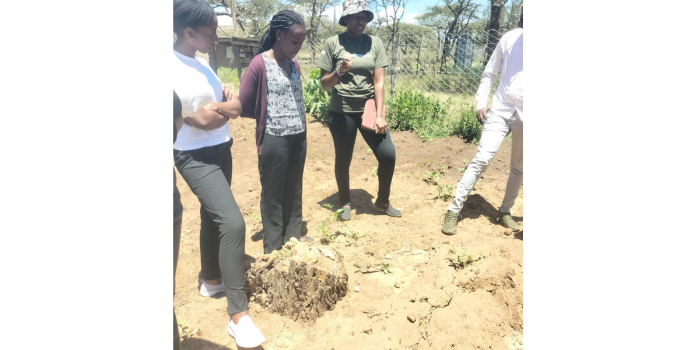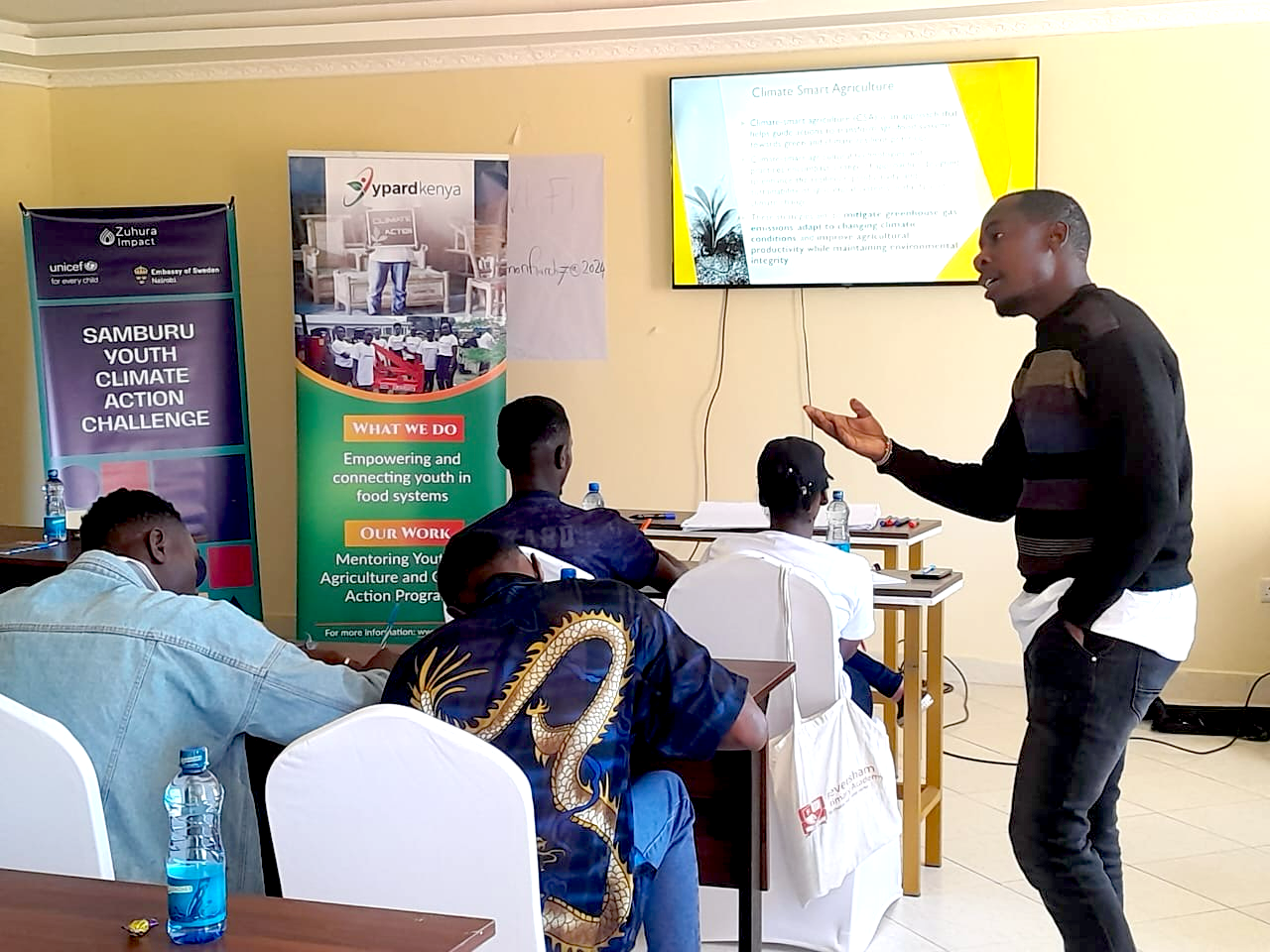The Samburu Youth Climate Action Project, led by Zuhara Impact Organization, aims to improve opportunities for entrepreneurship and climate change mitigation and socio-labor of youths in vulnerable communities in Samburu, Kenya. It offers a solution to youth unemployment and promotes youth participation, leadership and empowerment with a focus on environmental sustainability through social innovation and social entrepreneurship, enabling young people to identify social and environmental challenges in their communities and create business solutions to address them, marketing models to help their businesses grow/expand/ improve their operational efficiency.
YPARD Kenya supports the project by offering custom made mentorship to support youth owned agri enterprises develop climate smart Agricultural practices that are aligned for enterprise development in a sustainable and eco friendly way.
The program had several online sessions, and a physical workshop in the Samburu County of Kenya. Below is a summary of the in person workshop that was part of the program. The workshop had two sessions: the conference and the field visits, which were both co-facilitated by Gloria Ivy and Austine Dan.
The Conference
The conference mentorship session on climate smart agricultural practices was conducted at Limon Ranch in Mararal town in Samburu County. The conference mentorship session began with a brief introduction on the importance of adopting climate smart agricultural practices in the face of changing weather patterns and increasing environmental challenges. Austin Dan emphasized the need for sustainable farming techniques that promote soil health, water conservation, and biodiversity.
Throughout the session, Austin shared practical tips and best practices for implementing climate smart agricultural practices. He explained techniques such as crop rotation, intercropping, and cover cropping to improve soil fertility and reduce the use of chemical fertilizers. He also discussed the benefits of using agroforestry, which combines tree planting with crop cultivation to enhance biodiversity and improve resilience to climate change. Austin explained how good water practices can help the mentees efficiently manage water resources and reduce their dependence on irrigation. We had an interactive session on the local trees to be intercropped with other crops and their benefits and also on the local integrated pest management methods.
The conference mentorship session concluded with a question and answer session, where mentors had the opportunity to ask about specific challenges they were facing in their own farms and receive personalized guidance on how to implement climate smart agricultural practices. Overall, the mentorship session was successful in providing valuable training and guidance on climate smart agricultural practices to the mentee and other farmers in the community. Participants left the session feeling inspired and motivated to adopt sustainable farming techniques that can help mitigate the impacts of climate change on agriculture.
The Field Visits

The team visited three different groups:
Agri Nutrition group
Their demo site was started in December 2023, the planted crops is kales, capsicum, spinach. The main objective for the group is to solve the issue of malnutrition through providing the community with nutritious porridge. The group got a challenge in getting land and secondly water for irrigation has been a problem. During the field visit the following recommendation were given to the group; we realized that they have to walk for a distance of almost 4km to enable them get water. We however advised them to consider adopting CSA techniques to enable easily maneuver through this major challenge. We advised that they consider doing double digging of their nursery beds as an auxiliary measure to help conserve and retain as much moisture as possible within the beds. This also sustains the growth and germination of the young seedlings for a relatively longer period even in absence of reliable rainfall. Double-dug nurseries or seedbeds is a proven CSA technique in areas where there’s rainfall deficiency. We outlined a practical procedure on how this can be successfully done , Move from watering 4 times to 3 times to allow the sweet potatoes to properly develop roots and diversify crops that provide a balance nutrition such as sorghum, amaranths and soya.
Environmental Justice
The group focus on hydroponic farming and tree nursery. They focus on community sensitization through tree planting, community cleaning. Their main objectives are to ensure constant supply of nutritious vegetable and also train the community on modern farming methods
The conservation agriculture group
This group have just set their demo site but they are focused in producing vegetables and solar dry them to be consumed out of season. They were advised how to establish their nursery in ways to maintain soil moisture. More mentoring to be done in regard to preservation.

